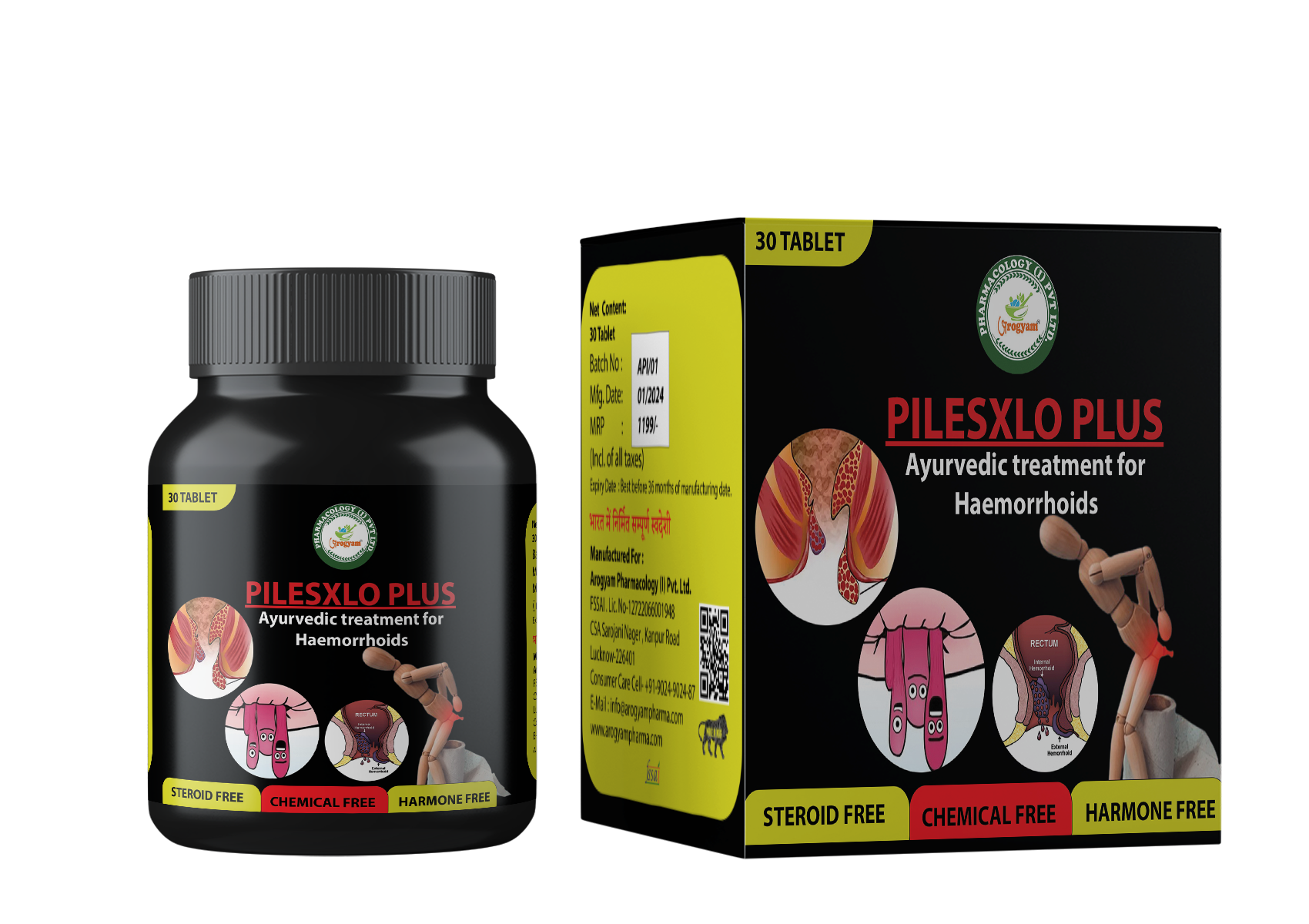
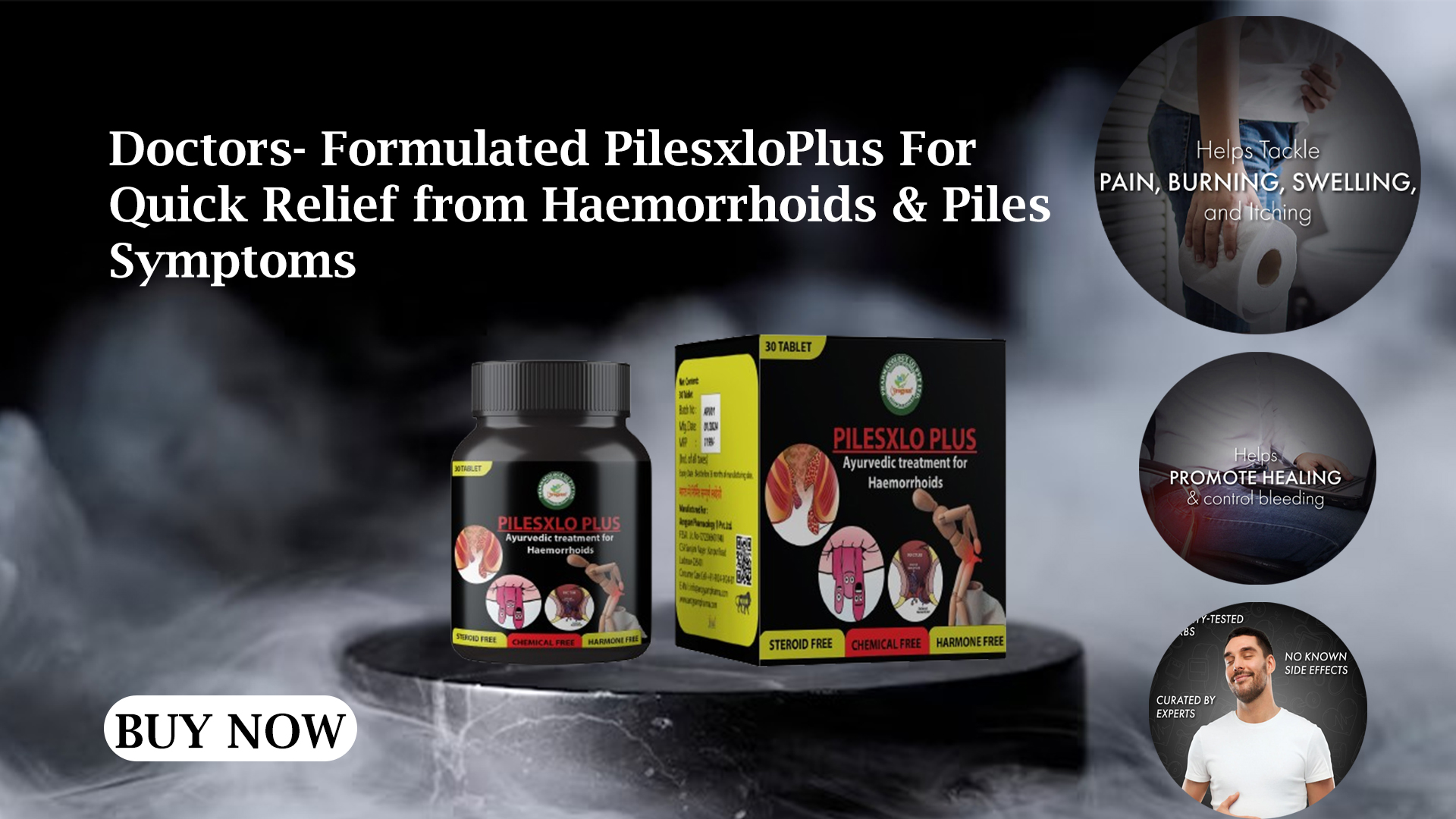
- Helps in relef from constipation and prevent piles recurrence also regulates bowel movement.
- Reduces Pain and Inflammation: Arogyam Pilesxlo Plus contains anti-inflammatory herbs that help to reduce the swelling and pain associated with piles. Ingredients such as Neem and Haritaki are known for their soothing properties, providing immediate relief from discomfort.
- All these actions help to prevent complications and can also promote shrinkage of the pile mass. It also helps to prevent a recurrence. Strengthens digestive system: Chitrak, Amaltas and other digestive herbs revive the digestive system to provide relief from indigestion, gas, bloating associated with piles and constipation. All-natural ayurvedic formulation with no known side effects
- Improves Digestion: Poor digestion and constipation are common triggers for piles. Arogyam Pilesxlo Plus includes digestive herbs such as Triphala and Baheda, which enhance digestive functions, promote regular bowel movements, and prevent the recurrence of piles.
- Strengthens Veins and Tissues: Weak veins and tissues can lead to the formation of piles. Arogyam Pilesxlo Plus strengthens the vascular system and enhances the elasticity of veins and tissues, preventing the formation of new piles and reducing the risk of recurrence.
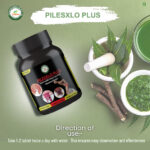
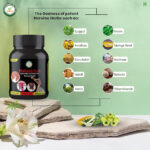
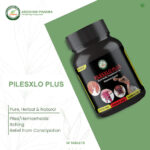
Understanding Piles: Types and Treatments
Piles, also known as hemorrhoids, are swollen veins in the anal and rectal area that cause discomfort, itching, pain, and sometimes bleeding. They are common and can develop due to several factors like chronic constipation, prolonged sitting, pregnancy, or obesity.
Types of Piles
Internal Piles:
- Found inside the rectum and are usually painless.
- May cause bleeding during bowel movements.
- Symptoms include mucous discharge and a sensation of incomplete evacuation.
External Piles:
- Located around the anus and can be painful, especially during sitting or bowel movements.
- Often accompanied by swelling and itching.
Prolapsed Piles:
- A more severe form of internal piles that protrude out of the anus.
- Can cause significant discomfort and may require manual repositioning.
Thrombosed Piles:
- External piles with a blood clot inside.
- Extremely painful and may cause a bluish lump near the anus.
Ayurvedic Treatments for Piles
Ayurveda views piles as a result of an imbalance in the three doshas (Vata, Pitta, and Kapha), leading to the accumulation of toxins (Ama) in the digestive tract. Treatments are focused on detoxification and restoring balance.
1. Herbal Remedies
- Triphala: A natural laxative to ease bowel movements and prevent constipation.
- Haritaki: Improves digestion and relieves swelling in the piles.
- Arogyam Pilesxlo Plus: A powerful Ayurvedic formulation with 9 herbs that target all types of piles, reducing inflammation, pain, and itching.
2. Topical Applications
- Aloe Vera Gel: Soothes irritation and reduces swelling.
- Neem and Turmeric Paste: Offers antiseptic and anti-inflammatory benefits.
- Medicated Oils: Such as Jatyadi Tailam, for healing anal fissures and reducing piles symptoms.
3. Dietary Modifications
- Increase intake of fiber-rich foods like whole grains, fruits, and vegetables.
- Stay hydrated by drinking plenty of water.
- Avoid spicy, oily, and processed foods that aggravate the condition.
4. Lifestyle Changes
- Avoid prolonged sitting or standing.
- Exercise regularly to maintain healthy digestion.
- Use a warm sitz bath to relieve pain and swelling.
Advanced Ayurvedic Therapies
- Kshar Sutra Therapy: A minimally invasive Ayurvedic procedure to treat chronic piles by ligating them with medicated threads.
- Panchakarma Detoxification: Especially Virechana (purgation) to eliminate toxins and restore digestive balance.
When to See a Doctor?
If you experience persistent pain, heavy bleeding, or prolapsed piles that don’t improve with home remedies, consult a specialist for advanced treatment options. Early intervention can prevent complications like anemia or severe infections.
By combining Ayurvedic wisdom with a healthy lifestyle, you can manage piles effectively and improve your overall well-being.
